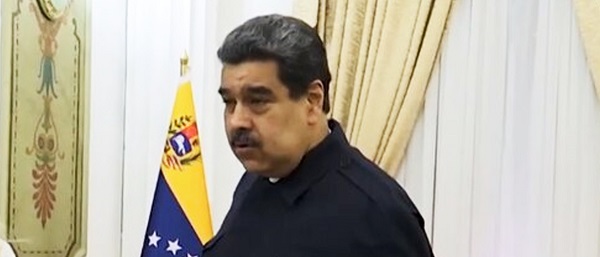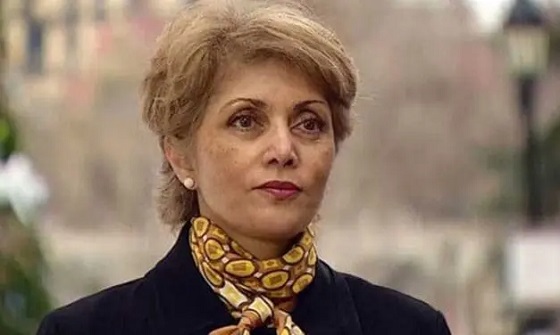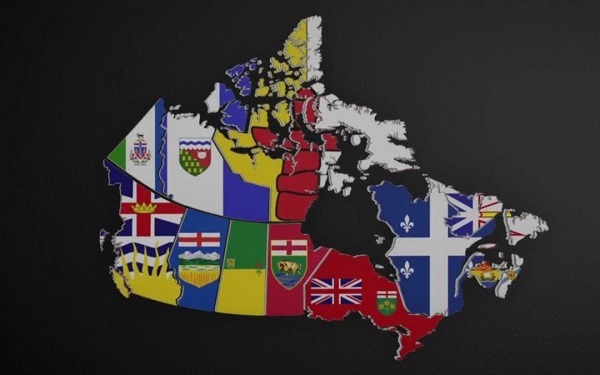2025 Federal Election
Police Associations Endorse Conservatives. Poilievre Will Shut Down Tent Cities

From Conservative Party Communications
Under the Lost Liberal decade, homelessness has surged by 20% since 2018 and chronic homelessness has spiked 38%. In cities like Nanaimo, Victoria and London, the number of people living in tents and makeshift shelters has exploded. In Toronto alone, there were 82 encampments in early 2023—now there are over 200, with an estimated 1,400 in Ontario.
Yesterday, Conservative Leader Pierre Poilievre received the endorsement of the Toronto Police Association, the largest single association of its kind in Canada, representing approximately 8,000 civilian and uniformed members.
This follows the endorsement by the police associations of Durham, Peel, Barrie, and Sault Ste. Marie of the Conservative plan to stop the crime and keep Canadians safe, after the Liberal government’s easy bail and soft-on-crime policies unleashed a wave of violent crime.
“These men and women put their lives on the line every day to keep our streets safe,” Poilievre said. “Our Conservative team is honoured to have their support and will back them up with laws to help them protect all Canadians.”
Poilievre also announced that a new Conservative government will ensure that police have the legal power to remove dangerous encampments to end the homelessness and the mental health and addiction crisis that has trapped thousands in dangerous tent cities and make life unsafe for law-abiding Canadians who live near them.
“Parks where children played are now littered with needles. Small businesses are boarded up and whole blocks of storefronts are shuttered because their owners can’t afford to deal with constant break-ins and vandalism,” Pierre Poilievre said. “Public spaces belong to everyone, but law-abiding citizens, especially families and seniors, are being pushed out to accommodate chaos and violence.”
Canadian cities have a mixed record of dealing with encampments in public places, with some not acting because they don’t believe they have the legal authority to remove the camps. Conservatives will work with provinces and ensure law enforcement has the clear legal tools they need to remove encampments and give Canadians back the safe streets and public spaces they deserve.
A Poilievre-led government will do this by reversing the Liberals’ radical pro-drug policies and by:
- Amending the Criminal Code to give police the tools to charge individuals when they endanger public safety or discourage the public from using, moving through, or otherwise accessing public spaces by setting up temporary structures, including tents.
- Clarifying in law that police can dismantle illegal encampments and ensure individuals living in them who need help are connected with housing, addiction treatment, and mental health services.
- Giving judges the power to order people charged for illegally occupying public spaces with a temporary structure and simple possession of illegal drugs to mandatory drug treatment.
- Returning to a housing first approach to homelessness, ensuring people get off the streets into a stable place to live with the support they need to rebuild their lives.
Under the Lost Liberal decade, homelessness has surged by 20% since 2018 and chronic homelessness has spiked 38%. In cities like Nanaimo, Victoria and London, the number of people living in tents and makeshift shelters has exploded. In Toronto alone, there were 82 encampments in early 2023—now there are over 200, with an estimated 1,400 in Ontario.
These encampments are a direct result of radical Liberal policies such as drug decriminalization and unsafe supply. They are extremely dangerous for the people trapped in them, who endure overdoses, assaults, including sexual assaults, human trafficking, and even homicide, as well as the community around them.
Under the Poilievre plan, tent cities will no longer be an option—but recovery will be. Conservatives will give law enforcement the tools they need to help clean up our streets, deal with chronic offenders, and provide truly compassionate recovery and treatment where it is needed.
“Instead of getting people the help they need, the Liberals abandoned our communities to chaos,” Poilievre said. “Leaving people trapped by their addictions to live outdoors through Canadian winters, sick, malnourished, cold, wet and vulnerable is the furthest thing from compassionate.”
A Conservative government will also overhaul the Liberals’ dangerous pro-drug policies that have led to over 50,000 overdose deaths over the Lost Liberal Decade. Instead of flooding our streets with taxpayer-funded hard drugs, we will invest in recovery to break the cycle of despair and offer real hope.
Conservatives will allow judges to sentence offenders to mandatory treatment for addiction, and we will fund 50,000 addiction treatment spaces, ensuring that those struggling with substance use get the support they need to recover—because real compassion means helping people get better, not enabling their suffering.
In addition to these measures, Poilievre has a plan to end the soft-on-crime approach of the Lost Liberal Decade, end the chaos, and restore order and safety across Canada:
- Three-Strikes-and-You’re-Out Law: Individuals convicted of three serious offences will face a minimum prison term of 10 years and up to a life sentence, with no eligibility for bail, probation, parole, or house arrest.
- Mandatory Life Sentences: Life imprisonment for those convicted of five or more counts of human trafficking, importing or exporting ten or more illegal firearms, or trafficking fentanyl.
- Repeal of Bill C-75: Ending the Liberals’ catch-and-release policies to restore jail, not bail, for repeat violent offenders.
- New Offense for Intimate Partner Assault: Creation of a specific offense for assault of an intimate partner, with the strictest bail conditions for those accused, and ensuring that murder of an intimate partner, one’s own child, or a partner’s child is treated as first-degree murder.
- Consecutive Sentences for Repeat Violent Offenders: So there will no longer be sentencing discounts for multiple murderers.
Canadians can’t afford a fourth Liberal term of rising crime and chaos in our streets. We need a new Conservative government that will end the chaos, restore order on our streets and bring our loved ones home drug-free.
2025 Federal Election
Protestor Behind ‘Longest Ballot’ Chaos targeting Poilievre pontificates to Commons Committee

Lawmakers confront organizer Tomas Szuchewycz for flooding ridings with placeholder candidates, targeting Pierre Poilievre’s seat, and wasting public resources.
Szuchewycz’s most notorious move came in Carleton — the riding of Conservative Leader Pierre Poilievre, where the ballot swelled to 91 names, stretching nearly a metre and forcing Elections Canada to redesign how it printed and handled the vote. The LBC framed the stunt as a protest against Canada’s first-past-the-post electoral system. But to most voters, it looked nothing like a principled reform campaign. What they saw was an effort aimed squarely at Poilievre, meant to bury his name among a wall of nobodies and turn the vote into a farce.
Elections Canada had to scramble to manage the chaos: printing extra‑long ballots, re‑training workers, and creating a last‑minute write‑in workaround in Battle River–Crowfoot to keep ballots usable. Seniors and disabled voters complained about the physical size and complexity of the ballot; poll workers faced new logistical headaches; public money was wasted.
At Tuesday’s hearing, Szuchewycz showed no contrition and offered no practical alternative to the system he had tried to upend. Instead, he accused MPs of having a “conflict of interest” in writing election law and demanded that power be handed to an undefined “permanent, non‑partisan body” — without explaining who would select it, how it would operate, or how it would be accountable to Canadians.
The LBC, whose actions led to metre-long ballots in ridings like Carleton (91 candidates) and Battle River–Crowfoot (86), claims to oppose Canada’s first-past-the-post system. But when asked how his proposed independent reform body would be formed, selected, or held accountable, Szuchewycz had no answers.
Conservative MP Michael Cooper led the charge, accusing Szuchewycz of overseeing a signature-harvesting scheme that involved electors signing blank nomination forms—potentially in violation of the Canada Elections Act. He tabled a January 2024 tweet and an August 2024 YouTube video showing organizers gathering signatures under the claim that candidate names would be “filled in later.”
Szuchewycz denied the accusation, claiming nomination papers had either candidate names or the phrase “all candidates” filled in. But when he tried to discredit Cooper’s evidence by calling it “AI-generated,” the committee chair issued a warning for casting doubt on the authenticity of a Member’s documents without basis. The comment was withdrawn under pressure.
Still, Cooper was unsatisfied, warning Szuchewycz that misleading Parliament could amount to contempt.
Other witnesses—experts and former elected officials—were equally critical of the LBC’s tactics. Dr. Lori Turnbull, a professor at Dalhousie University, called the stunt “undesirable” and a “waste of resources,” though she praised Elections Canada for adapting quickly by allowing a write-in workaround in Battle River–Crowfoot to avoid printing a literal wall of names.
Professor Peter Loewen of Cornell University added that the LBC’s ballot-stuffing “violates the spirit” of competitive democracy and burdens front-line elections staff with unnecessary logistical chaos. He warned that a third-party group acting like a political party without oversight was a loophole that needed closing.
Meanwhile, former Liberal MP Louis-Philippe Sauvé described the real-world toll of the stunt: longer lineups, stressed poll workers, and accessibility hurdles for elderly and visually impaired voters.
In stark contrast to these grounded critiques, Szuchewycz’s testimony revolved around vague accusations of “conflict of interest” by MPs and a call to remove Parliament from electoral reform altogether. No constitutional roadmap. No governance model. No practical enforcement mechanism.
At the end of the day, what Tomas Szuchewycz has done isn’t just a stunt, it’s an insult. He claims Canadians “know what he’s protesting,” but let’s be honest: most voters had no clue this was about electoral reform. What they saw was a campaign to flood ballots with nonsense names in key ridings, especially against the Leader of the Opposition, and create chaos for chaos’s sake.
The takeaway wasn’t a conversation about democracy. It was a spectacle, and one that mocked the very voters he pretends to represent. Lets be clear, This wasn’t activism, it was ego masquerading as principle. And it reeked of entitlement.
Tomas Szuchewycz is the embodiment of unchecked privilege: a man who hijacked our electoral process, wasted taxpayer dollars, and offered nothing in return but smug contempt for the very democracy that gave him the space to pull his stunt.
He claims Canadians understood his message. They didn’t. Most people saw a confusing mess, an attack on the Opposition Leader, and a joke made at the expense of voters, poll workers, and the electoral system itself.
So yes — reform is coming. And it can’t come soon enough.
Parliament must not just close the loopholes it should make sure that when someone deliberately sabotages the integrity of an election, they are held accountable, including being forced to repay the public for the cost of their chaos.
Because in a democracy, you have the right to protest.
But not the right to turn an election into a farce on the public’s dime.
Subscribe to The Opposition with Dan Knight
Invite your friends and earn rewards
2025 Federal Election
Post election report indicates Canadian elections are becoming harder to secure

Chief Electoral Officer Stéphane Perrault highlights strong participation and secure voting, but admits minority politics, rising costs, and administrative pressures are testing the system’s limits.
Monday in Ottawa, Stéphane Perrault, Canada’s Chief Electoral Officer, delivered a long press conference on April’s federal election. It was supposed to be a victory lap, record turnout, record early voting, a secure process. But if you listened closely, you heard something else: an admission that Canada’s election machinery is faltering, stretched thin by a system politicians refuse to fix.
Perrault touted the highest turnout in 30 years, 69 percent of eligible voters, nearly 20 million Canadians. Almost half of those ballots were cast before election day, a dramatic shift in how citizens take part in democracy.
“Twenty years ago, less than 7% voted early. This year, nearly half did,” Perrault told reporters. “Our system may have reached its limit.”
That’s the core problem. The system was built for one decisive day, not weeks of advance voting spread across campuses, long-term care homes, mail-in ballots, and local Elections Canada offices. It’s no longer a single event; it’s an extended process that stretches the capacity of staff, polling locations, and administration.
Perrault admitted bluntly that the 36-day writ period, the time between when an election is called and when the vote happens, may no longer be workable. “If we don’t have a fixed date election, the current time frame does not allow for the kind of service preparations that is required,” he said.
And this is where politics collides with logistics. Canada is once again under a minority government, which means an election can be triggered at almost any moment. A non-confidence vote in the House of Commons, where opposition parties withdraw support from the government, can bring down Parliament in an instant. That’s not a flaw in the system; it’s how parliamentary democracy works. But it leaves Elections Canada on permanent standby, forced to prepare for a snap election without knowing when the writ will drop.
The result? Sixty percent of voter information cards were mailed late this year because Elections Canada couldn’t finalize leases for polling stations on time. Imagine that, more than half the country got their voting information delayed because the system is clogged. And that’s when everything is supposedly working.
The April election cost an estimated $570 million, almost identical to 2021 in today’s dollars. But here’s the kicker: Elections Canada also spent $203 million just to stay ready during three years of minority Parliament. That’s not democracy on the cheap. That’s bureaucracy on retainer.
Perrault admitted as much: “We had a much longer readiness period. That’s the reality of minority governments.”
No Foreign Interference… But Plenty of ‘Misinformation’
Canada’s top election official wanted to make something perfectly clear: “There were no acts of foreign interference targeting the administration of the electoral process.” That’s the line. And it’s a good one… reassuring, simple, the kind of phrase meant to make headlines and calm nerves.
But listen closely to the wording. He didn’t say there was no interference at all. He said none of it targeted the administration of the vote. Which raises the obvious question: what interference did occur, and who was behind it?
Perrault admitted there was “more volume than ever” of misinformation circulating during the 2025 election. He listed the greatest hits: rumors that Elections Canada gives voters pencils so ballots can be erased, or claims that non-citizens were voting. These are hardly new — they’ve appeared in the U.S. and in Europe too. The difference, he said, is scale. In 2025, Canadians saw those narratives across more channels, more platforms, more communities than ever before.
This is where things get interesting. Because the way Perrault framed it wasn’t that a rogue actor or a foreign intelligence service was pushing disinformation. He was blunt: this was a domestic problem as much as anything else. In his words, “whether foreign or not,” manipulation of information poses the “single biggest risk to our democracy.”
Perrault insists the real danger isn’t foreign hackers or ballot-stuffing but Canadians themselves, ordinary people raising questions online. “Information manipulation, whether foreign or not, poses the single biggest risk to our democracy,” he said.
Well, maybe he should look in the mirror. If Canadians are skeptical of the system, maybe it’s because the people running it haven’t done enough to earn their trust. It took years for Ottawa to even acknowledge the obvious , that foreign actors were meddling in our politics long before this election. Endless commissions and closed-door reports later, we’re told to stop asking questions and accept that everything is secure.
Meanwhile, what gets fast-tracked? Not a comprehensive fix to protect our democracy, but a criminal investigation into a journalist. Keean Bexte, co-founder of JUNO News, is facing prosecution under Section 91(1) of the Canada Elections Act for his reporting on allegations against Liberal candidate Thomas Keeper. The maximum penalty? A $50,000 fine and up to five years in prison. His reporting, incidentally, was sourced, corroborated, and so credible that the Liberal Party quietly dropped Keeper from its candidate list.
If people doubt the system, it isn’t because they’re gullible or “misinformed.” It’s because the government has treated transparency as an afterthought and accountability as an inconvenience. And Perrault knows it. Canadians aren’t children to be scolded for asking questions, they’re citizens who expect straight answers.
But instead of fixing the cracks in the system, Ottawa points the finger at the public. Instead of rebuilding trust, they prosecute journalists.
You don’t restore faith in democracy by threatening reporters with five years in prison. You do it by showing, quickly and openly, that elections are beyond reproach. Until then, spare us the lectures about “misinformation.” Canadians can see exactly where the problem lies, and it isn’t with them.
The Takeaway
Of course, they’re patting themselves on the back. Record turnout, no servers hacked, the trains ran mostly on time. Fine. But what they don’t want to admit is that the system barely held together. It was propped up by 230,000 temporary workers, leases signed at the last minute, and hundreds of millions spent just to keep the lights on. That’s not stability. That’s triage.
And then there’s the lecturing tone. Perrault tells us the real threat isn’t incompetence in Ottawa, it’s you, Canadians “sharing misinformation.” Excuse me? Canadians asking questions about their elections aren’t a threat to democracy, they are democracy. If the government can’t handle people poking holes in its story, maybe the problem isn’t the questions, maybe it’s the answers.
So yes, on paper, the 2025 election looked like a triumph. But listen closely and you hear the sound of a system cracking under pressure, led by officials more interested in controlling the narrative than earning your trust. And when the people running your elections think the real danger is the voters themselves? That’s when you know the elastic isn’t just stretched. It’s about to snap.
-

 Business1 day ago
Business1 day agoBank of Canada governor warns citizens to anticipate lower standard of living
-

 Agriculture1 day ago
Agriculture1 day agoCloned foods are coming to a grocer near you
-

 International1 day ago
International1 day agoUS Reportedly Weighing Military Strikes On Narco Targets Inside Venezuela
-

 Alberta1 day ago
Alberta1 day agoGondek’s exit as mayor marks a turning point for Calgary
-

 International1 day ago
International1 day agoSagrada Familia Basilica in Barcelona is now tallest church in the world
-

 Fraser Institute1 day ago
Fraser Institute1 day agoOttawa continues to infringe in areas of provincial jurisdiction
-

 Business4 hours ago
Business4 hours agoYou Won’t Believe What Canada’s Embassy in Brazil Has Been Up To
-

 Automotive4 hours ago
Automotive4 hours agoCarney’s Budget Risks Another Costly EV Bet













